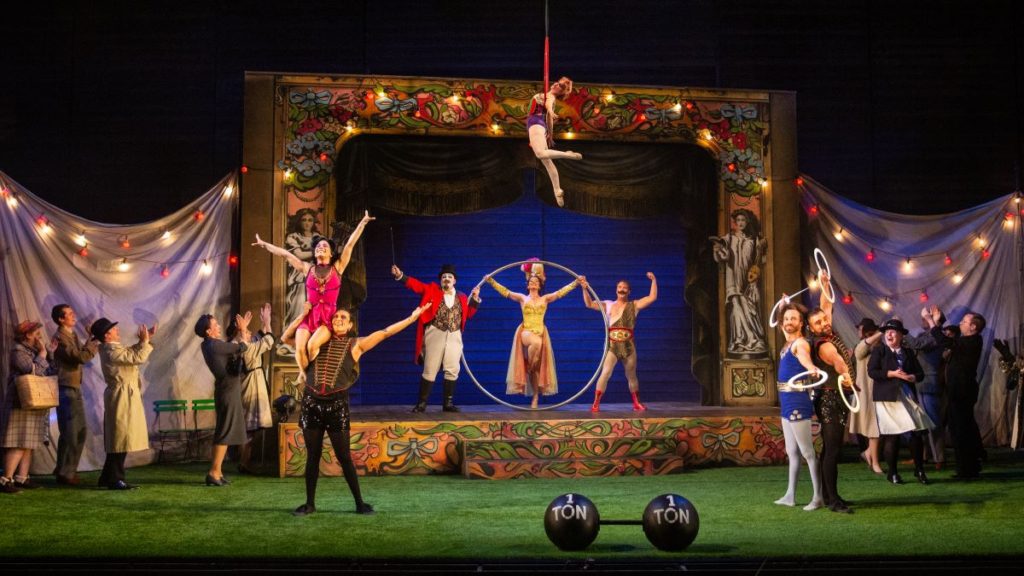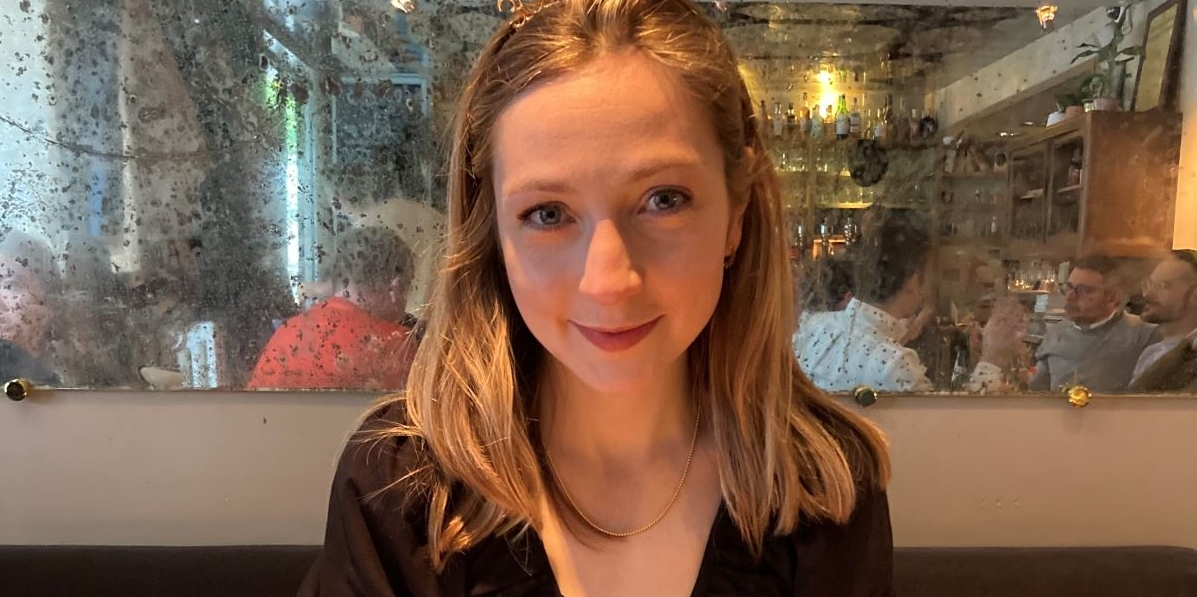Rosie Purdie is the director of the revival at Garsington of their successful production of Smetana’s The Bartered Bride. I caught up with her after one of her days preparing for the opening on 30 June. I began by asking her if she was attempting a straight facsimile or whether she was trying to create a completely new and personal vision of the opera.
“Actually, it’s a mixture of both,” she told me. “I was involved originally as the assistant to its director Paul Curran. I’m in complete sympathy with the spirit of Paul Curran’s vision and the world that this particular production lives in. But it’s also up to me to figure out how to do that with a whole new bunch of people. Working with mostly new singers and personalities, naturally they all come with their own ideas and interpretations of their roles. As a director I want to tap into their creativity, so, frankly, it was a lot of fun in our rehearsals to marry the original production with these new people.”
Rosie and I discussed how things have changed since she first worked on this production. “It was a different world then and I think it fed into our thinking. I was working again with the choreographer Darren Royston and there’s definitely a different undercurrent for us this time. It’s important to remember that we first did it the summer before Covid. It was a joyful show back in 2019. Now I feel that we’re doing it because we have more need to find joy. Especially with the situation of the arts at the moment. It’s inspiring to work on this piece, especially in Garsington Opera and with this company.”
Rosie is delighted with her cast. It’s the role debut for almost all of them. “You cannot imagine the pleasure of working with Pumeza Matshikiza on the characterization of Marenka through her amazing singing. I love David Ireland’s way with the role of Kecal. Olly Johnston was originally the understudy for Jenik. So he’s actually coming back to the role. It was interesting to encourage him not to imitate what he did before – he had actually gone on once — but to confidently bring his own input. It’s really refreshing how he subtly made the role his own. He started simply by trying to make certain everything was being done right. I guess it was a muscle memory thing, so he really had to work to find his own way. He had to start from scratch. It was incredibly rewarding to watch him do that and to see the way he slotted into place and made Jenik more more part of his own personality. Everyone else except the Ring Master of the circus is completely new. Jeffrey Lloyd-Roberts loves Ring Master role. He was very good at experimenting all through rehearsals. He’s found many new things being a flexible, imaginative performer. And we’re doing it all in Czech, which adds another layer of difficulty. But all the cast make it come alive!”

I asked if it was challenging not only for the cast but for herself to have to work in Czech. “I love the challenge and working with different languages. Everything for me is tied to the libretto and its phonetics, for our brilliant conductor too. I have glossaries that I did of all the words. Paul Curran is a real linguist and so I had to make sure this revival is up to scratch. It helps, of course, to have a brilliant Czech coach in the room every day.”
The conductor, Jac van Steen, is working on the show for the first time and loving the score. The opera is a lovely romantic story about a boy and a girl and the expectations of a society as well as their interference of the older generation in the lives of a younger generation with different values and ideals. “Setting the production in the 1950s makes it near enough to see what was funny at the time, what we can satirise, but it also helps lock onto the feminist subtext of the original. In this community’s split between an older, more traditional generation and a younger one feeling times need to change. Some of the women believe in having more authority over their lives, which particularly chimes in with Marenka and her mother who talk about doing what’s right for them and not compromising. And there’s a happy ending. This is a Julia Roberts style romantic comedy. And of course, the whole evening is carried by this amazing music that is quite rousing. Our chorus give it their all. When we started working with the orchestra I began to hear orchestrations that round out the characters. You don’t hear that in the rehearsal room with just the piano. And with the orchestra going full blast you can interpret the numbers in new ways. The polka has become a Maypole dance; the furia is done as a twist, very 1950s. And when you get to the circus and the third at, there is an awful lot to pay attention to on stage.”
Rosie also talked about her great sympathy for all the characters, especially the younger brother, Vasek, played by John Findon. “Vasek is a lost soul in this world and doesn’t know how to fit in. The circus people give him a glimpse of freedom and he’s able to escape. Of course we are using real circus people to do the acrobatics and the juggling and the unicycling and so on. John Findon is new to this opera and he simply loves his role, especially doing all his poignant comedy.”
At this point Rosie had to get back to work. My impression was that Rosie and her colleagues are loving this production and approaching it with analytic and musical intelligence and a sense of unbridled fun.

